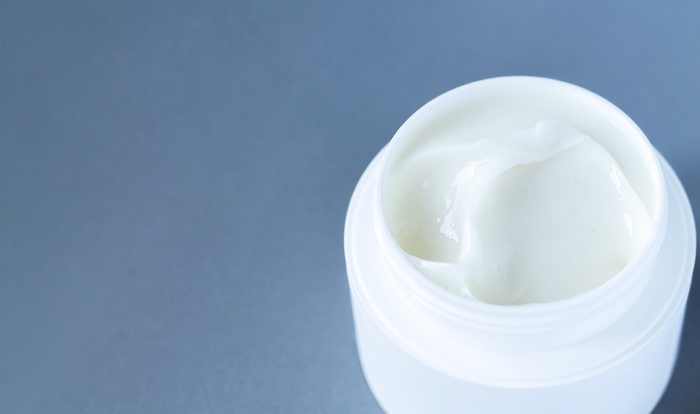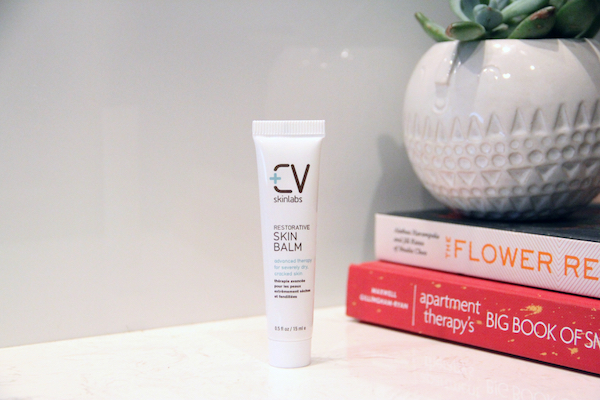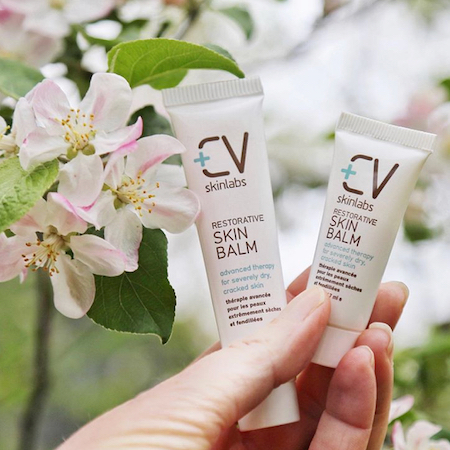[ad_1]
Have you heard of the new beauty trend called “slugging?”
It’s hard to tell exactly where it started, but it’s exploded on TikTok in recent months and has now taken the beauty world by storm.
Everyone seems to be doing it. We’re all for getting a gorgeous glassly and poreless look, but we have a way you can do it better—that’s healthier for your skin.
What is Slugging?
Slugging refers to the process of slathering petroleum jelly all over your face (or other areas of your skin) before you go to bed. Your skin will look and feel better the next morning, according to social media posts.
We traced it back to a 2014 post on Reddit, though it could have started long before that in some circles. After all, before more modern-day skin care treatments came out, people used to use Vaseline (which is 100 percent petroleum jelly) regularly to soften their skin because it was one of the few options they had.
Commenters on Reddit talked about slathering their skin with Vaseline to help with dryness, eczema, chapped skin, and more.
Advocates say that when they “slug,” they wake up with their skin looking better than ever.
The results include “baby-smooth skin,” according to these fans. “My skin feels so soft and fresh in the morning!”
The process is also said to help delay the look of aging, keeping your skin moist and maintaining its elasticity.
The idea of slugging is attractive to many people because it’s easy, inexpensive, and hearkens back to the “olden days” when things were a lot simpler than they are today.
Yes, your skin may feel softer in the short term, but you could be setting yourself up for problems down the road, especially for those who are acne-prone or have sensitive skin conditions.
Where Did the Name “Slugging” Come From?
As for that name, “slugging,” it came to be because of the way that petroleum jelly shines on your skin.
Slather your skin with Vaseline and look in the mirror. You’ll notice that moist, shiny look.
This, according to those who made slugging a thing, makes you resemble a slug! You know, the shell-less terrestrial gastropod mollusks found in humid climates around the world.
Not exactly the picture of beauty, but can’t deny that the name is catchy!
Why We Don’t Think Slugging With Petroleum-Based Products is a Good Idea for Your Skin
Petroleum jelly is called an “occlusive,” which means that it forms a protective layer on your skin to trap the moisture it already has inside it.
Less moisture evaporates, which means your skin may appear softer and plumper for a little while.
As advocates for clean beauty and healthy skin, however, we here at CV Skinlabs know that you can help your skin much more with other ingredients. Plus we’re not big fans of petroleum jelly. Here are a few reasons why.
1. It comes from petroleum.
Also known as petroleum jelly or soft white paraffin wax, petrolatum is a byproduct of petroleum refining.
When the refining process is done with care, petroleum jelly has no known health concerns (though it’s still not the best for skin—more on that below). But unless the entire refining process is carefully monitored and recorded, there is a potential for contamination from polycyclic aromatic hydrocarbons (PAHs), which are cancer-causing chemicals found in crude oil and its by-products. Refined petroleum products may also contain hormone-disrupting substances.
The Food and Drug Administration (FDA) considers mineral oil and other petrolatum products to be safe. The European Union, however, has classified petrolatum as a carcinogen and has placed restrictions on its use in cosmetics.
Only when the full refining history is known and it can be shown that the substance from which it’s produced is not a carcinogen can European manufacturers use it in cosmetics.
(Vaseline ensures that it’s made with the highest quality ingredients and a proprietary triple-purification process involving distillation, de-aeration, and filtration.)
2. Petroleum jelly traps bacteria against the skin.
Petrolatum jelly coats the skin. This can help reduce water loss, but it can also trap bacteria against the skin. That’s why it’s usually not good for acne-prone skin.
In a 2000 study, researchers found that after healthcare workers started using petroleum ointment for skin care in infants, those infants experienced an outbreak of systemic candidiasis (fungal infection).
Use petroleum jelly frequently and you may notice more clogged pores, pimples, whiteheads, and blackheads.
3. Petroleum jelly delivers no moisture.
The other thing we don’t like about petroleum is that other than coating the skin, it does nothing for it. It forms a barrier over it, but many other ingredients do this while also nourishing the skin.
Petroleum jelly simply coats the skin. Over time (if you use it consistently), it can slow down the cell renewal process and create older-looking skin.
4. Petroleum jelly can dry the skin over time.
If you slug every night for several weeks, you may notice that your skin starts to look drier.
That’s because instead of giving your skin the additional moisture it needs, all you’re doing is trapping the moisture it already has.
But if it’s already dry, that’s not going to help much. Dry skin needs additional moisture. If you rob it of that week after week, eventually you’re going to notice more fine lines and wrinkles as well as duller-looking skin.
What We Suggest for Healthier Slugging!
The idea of bathing your skin in moisture before you go to bed is still a good one if you’re battling dry skin, eczema, psoriasis, or dullness.
We suggest that you swap out your Vaseline, Aquaphor, or other petroleum-based ointments for our petrolatum free, 100% natural and totally clean Restorative Skin Balm. It will give you the effects you’re looking for—that overnight moisture—while delivering so much more!
First, it’s noncomedogenic, so it won’t clog your pores like petroleum jelly can. It helps seal in moisture using healthier ingredients like beeswax and carnauba. It also delivers moisture by bathing your skin in natural safflower, sweet almond, and jojoba oils
You get essential fatty acids from super-moisturizing shea butter and squalane, plus the antioxidant protection of sea buckthorn oil that delivers nourishing essential fatty acids and helps delay premature aging.
And with our exclusive Tri-Rescue Complex, you also get the best in natural-ingredient healing. It can help repair and improve a variety of skin conditions like eczema.
So go ahead. Slather away. Just be choosier about which product you’re slathering with!
[ad_2]


